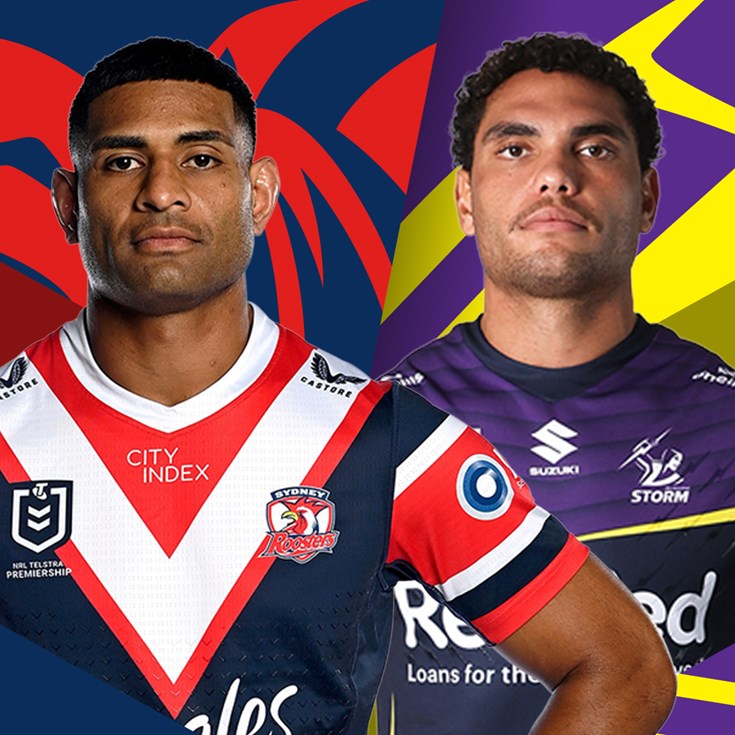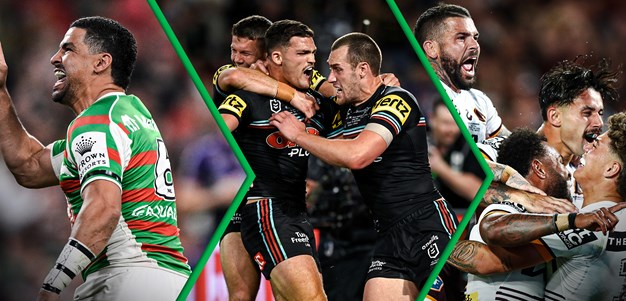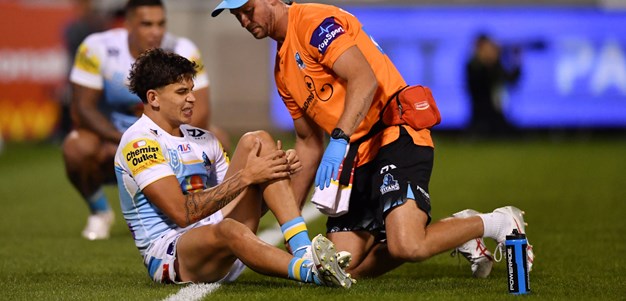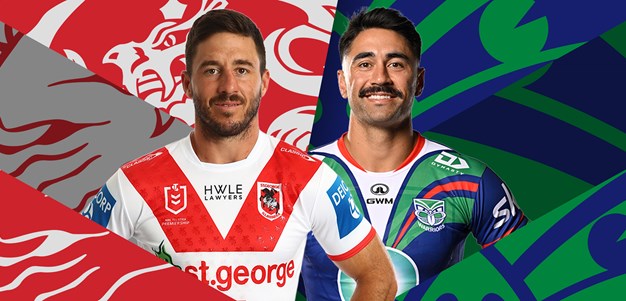The newest Immortals will be announced later in the year with a panel of experts set to decide who will join names Clive Churchill, John Raper, Graeme Langlands, Reg Gasnier, Bob Fulton, Arthur Beetson, Wally Lewis and Andrew Johns as part of the illustrious club.
While a lot of the discussion has been around modern-era candidates including Darren Lockyer, Mal Meninga and Norm Provan, NRL.com consulted noted historian and stats guru David Middleton to offer insight into the four main candidates from the pre-World War II era.
Frank Burge
Position: Lock/Second row.
Clubs: Glebe 1911–23, 1926; Grenfell 1923–25; St George 1927.
Games for NSW: 18 (1912–26).
Tests for Australia: 13 (1914–22).
Middleton says: "He's regarded as one of the greatest try-scoring forwards that ever played. His strike rate puts Steve Menzies in the shade. He almost scored a try a game and did the same at rep level. He was one of four brothers and was regarded ahead of his time in fitness. He would go on long runs to Bondi from Glebe and back. They reckon it's one of the main reasons he was well ahead of the rest of the pack. That's what you're looking for in assessing these guys with hall of fame and Immortal status – how far ahead they were. It's so hard to line up somebody like him against today's players because the game was so different. But the fact he stood head and shoulders above every other forward in his era makes him special."
Duncan Thompson
Position: Halfback.
Clubs: St Paul’s Ipswich 1911–15; Wests Newcastle 1915; North Sydney 1916, 1920–23; Starlights Ipswich 1919; Valleys Toowoomba 1924–25.
Games for NSW: Two (1921–22).
Games for Queensland: 17 (1915–25).
Tests for Australia: Nine (1919–24).
Middleton says: "He is one of the favourite stories in the game for me because he started out his career in Ipswich and worked for the Commonwealth Bank. He later went to war and was shot through the lung and told he would never play sport again. Not only did he play sport again but he ended up representing Australia. He was a great tactician of the game and ended up coaching at Toowoomba. Some of his methods and continue to be adopted by Wayne Bennett to this day and the Walker brothers used some of his tactics in the Intrust Super Cup in 2015. That all started with Duncan Thompson. I don't know if he would measure up to the records of Brown, Messenger and Burge but certainly from a tactical point of view he would."
Dally Messenger
Position: Centre.
Club: Eastern Suburbs 1908–13.
Games for NSW: 23 (1908–13).
Games for Queensland: 1 (1908).
Tests for Australia: Seven (1908–10) — three as captain.
Middleton says: "He was called the first rugby league superstar, he did things that were unorthodox and stood out that much from the rest of the players it wasn't funny. He was regarded universally as the star player, to the extent he's still remembered well now even though he died more than 60 years ago. He was halfway through his career by time rugby league came around. He played a huge number of rep games but not club games. In those days they just didn't play that many games. They made Dally M footballs and we've obviously got the Dally M medal each year so he's left a big footprint on the game. To be an immortal would be the final step to prolong his memory."
Dave Brown
Position: Centre.
Clubs: Eastern Suburbs 1930–36, 1939–41; Warrington 1937–38.
Club landmarks: Won premierships with Easts 1935–36, 1940.
Games for NSW: 21 (1931–36).
Tests for Australia: Nine (1933–36) — six as captain.
Middleton says: "They referred to him as the [Don] Bradman of league because of his record scoring ability both as a centre and goal kicker. He used to score large amounts of tries. Some of his records still stand today, the most points he scored in a game is 45 which has never been equalled or better. He scored 38 tries in 1935 from 16 games which is just phenomenal, and he was doing it against established clubs as well. A player with freakish ability that was only on the scene for less than 10 years. He would be very worthy as a top-line contender."





